Mahdi Shakiba-Herfeh
Finite Blocklength Secrecy Analysis of Polar and Reed-Muller Codes in BEC Semi-Deterministic Wiretap Channels
May 22, 2021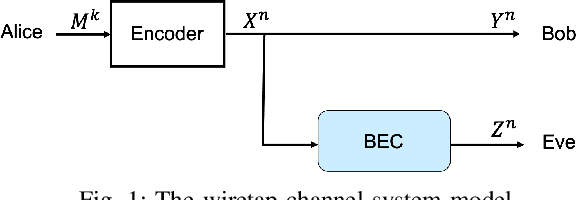

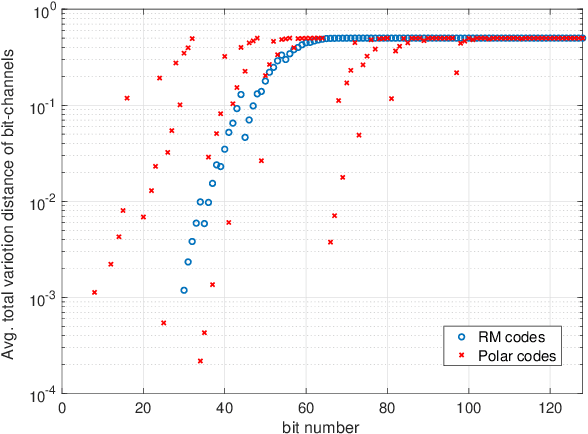
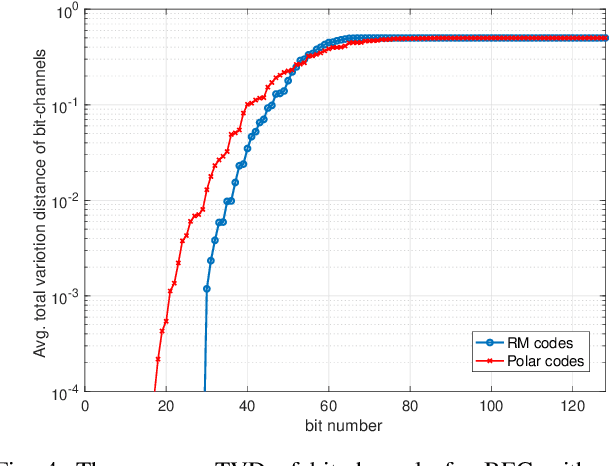
Abstract:In this paper, we consider a semi-deterministic wiretap channel where the main channel is noiseless and the eavesdropper's channel is a binary erasure channel (BEC). We provide a lower bound for the achievable secrecy rates of polar and Reed Muller codes and compare it to the second order coding rate for the semi-deterministic wiretap channel. To the best of our knowledge, this is the first work which demonstrates the secrecy performance of polar and Reed-Muller codes in short blocklengths. The results show that under a total variation secrecy metric, Reed Muller codes can achieve secrecy rates very close to the second order approximation rate. On the other hand, we observe a significant gap between the lower bound for the achievable rates of polar codes and the the second order approximation rate for short blocklengths.
Comparison of Short Blocklength Slepian-Wolf Coding for Key Reconciliation
Mar 21, 2021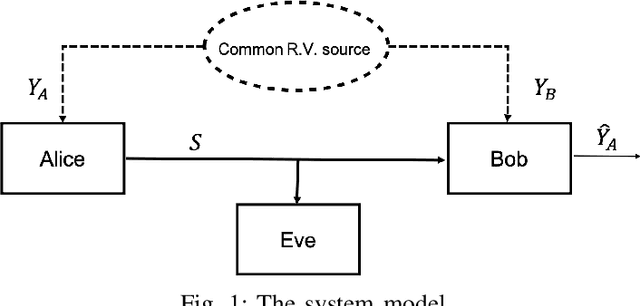
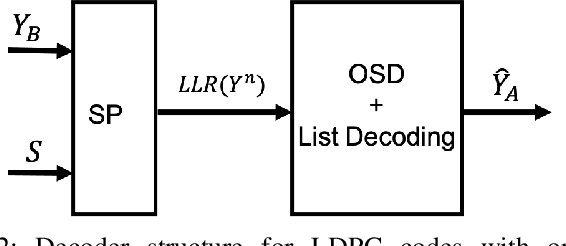
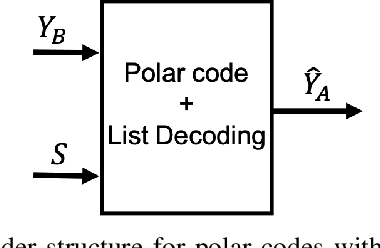

Abstract:We focus Slepian-Wolf (SW) coding in the short blocklength for reconciliation in secret key generation and physical unclonable functions. In the problem formulation, two legitimate parties wish to generate a common secret key from a noisy observation of a common random source in the presence of a passive eavesdropper. We consider three different families of codes for key reconciliation. The selected codes show promising performances in information transmission in the short block-length regime. We implement and compare the performance of different codes for SW reconciliation in the terms of reliability and decoding complexity.
 Add to Chrome
Add to Chrome Add to Firefox
Add to Firefox Add to Edge
Add to Edge